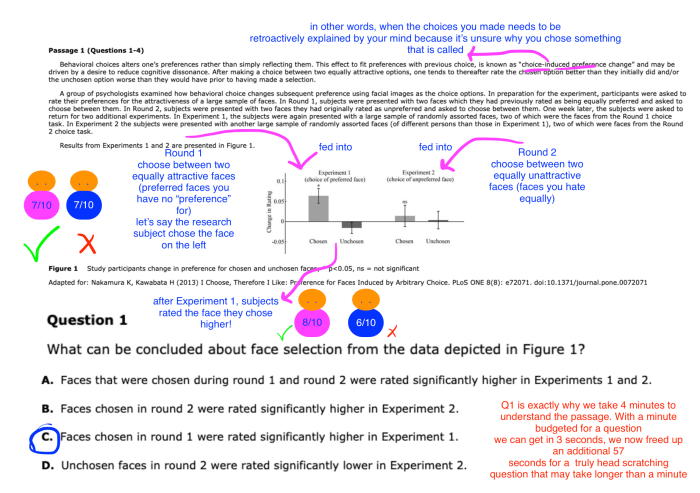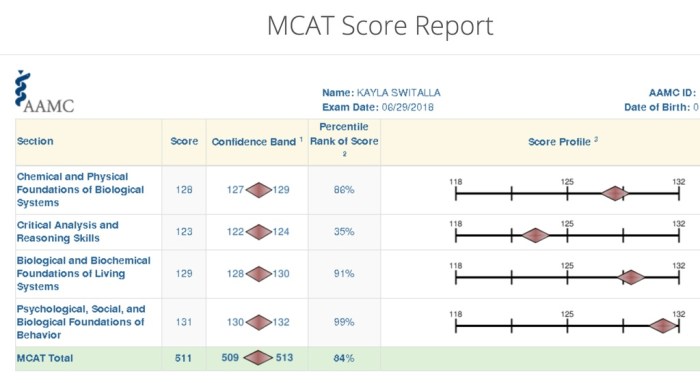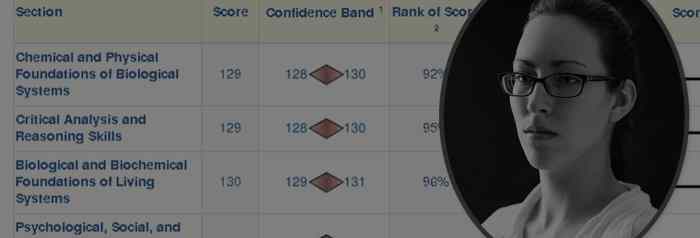High yield psych soc mcat: This guide delves into the captivating realm of high-yield psych soc topics, providing a roadmap for MCAT success. Drawing upon research and expert insights, we uncover the significance of these concepts and equip you with effective strategies to conquer this challenging section.
As you embark on this journey, you’ll gain a comprehensive understanding of core concepts, delve into effective study techniques, and encounter practice questions that will sharpen your critical thinking skills. With this guide as your compass, you’ll navigate the intricacies of high yield psych soc and emerge as a confident and well-prepared MCAT candidate.
Introduction
Understanding high yield psych soc topics is crucial for excelling in the MCAT. These topics cover fundamental concepts in psychology and sociology that frequently appear on the exam. Research indicates that approximately 20-30% of MCAT questions fall under the psych soc domain.
Mastering these topics not only enhances your chances of scoring well on the MCAT but also provides a solid foundation for your future medical practice. By understanding human behavior, social interactions, and psychological principles, you can develop effective communication skills, build strong patient relationships, and make informed decisions that positively impact patient care.
Significance of Psych Soc Topics
- Enhanced Patient Care:Psych soc knowledge enables physicians to comprehend patients’ emotional, behavioral, and social needs, leading to more holistic and patient-centered care.
- Improved Communication:Understanding psych soc concepts facilitates effective communication with patients, fostering trust and rapport, which is vital for successful treatment outcomes.
- Informed Decision-Making:Psych soc knowledge empowers physicians to make informed decisions about treatment plans, considering patients’ psychological and social circumstances.
Key Concepts
The high yield psych soc section on the MCAT assesses your understanding of core concepts and theories in psychology and sociology. These concepts are crucial for practicing medicine as they provide a framework for comprehending and addressing the psychological and social factors that influence patient health and well-being.
The MCAT tests your knowledge of various psychological theories, including cognitive psychology, developmental psychology, and social psychology. Cognitive psychology focuses on mental processes such as memory, attention, and decision-making. Developmental psychology examines how individuals change and grow throughout their lifespan.
Social psychology investigates the influence of social interactions on behavior and attitudes.
Sociological Theories
In sociology, the MCAT emphasizes theories related to social stratification, social inequality, and social institutions. Social stratification refers to the hierarchical arrangement of individuals and groups within a society. Social inequality examines the unequal distribution of resources and opportunities among different social groups.
Social institutions, such as the family, education system, and healthcare system, shape individual behavior and societal norms.
Psychopathology
The MCAT also tests your knowledge of psychopathology, which involves the study of mental disorders. You will be expected to understand the symptoms, causes, and treatment options for various mental health conditions, including anxiety disorders, mood disorders, and personality disorders.
Studying high yield psych soc for the MCAT is crucial for a strong score, but don’t forget about the cst land nav written exam if you’re aiming for a career in the military. The MCAT tests your understanding of complex psychological and social concepts, while the cst land nav written exam assesses your ability to navigate unfamiliar terrain using a map and compass.
Both exams require critical thinking and problem-solving skills, so preparing for one can indirectly benefit your preparation for the other.
Study Strategies: High Yield Psych Soc Mcat

To master high-yield psych soc material for the MCAT, it’s crucial to adopt effective study methods. This involves a combination of memorization, comprehension, and critical thinking.
Memorization is essential for retaining key concepts and facts. Techniques like flashcards, spaced repetition, and mnemonic devices can enhance memorization.
Comprehension involves understanding the material and its implications. Reading actively, taking notes, and engaging in discussions can improve comprehension.
Critical thinking skills are vital for applying knowledge and solving problems. Practice question-solving, analyzing scenarios, and evaluating arguments to strengthen critical thinking.
Spaced Repetition
Spaced repetition involves reviewing material at increasing intervals. This method helps strengthen memories and improve long-term retention.
Mnemonic Devices
Mnemonic devices are memory aids that help recall information. Acronyms, rhymes, and visual cues can be effective mnemonic devices for psych soc concepts.
Active Reading
Active reading involves actively engaging with the material by highlighting, annotating, and summarizing key points. This enhances comprehension and retention.
Question-Solving Practice
Practice solving MCAT-style questions regularly. This helps identify areas of weakness, improve problem-solving skills, and build confidence.
Sample Questions

Practice questions are essential for mastering high-yield psych soc topics on the MCAT. They help you identify areas of weakness, build your confidence, and improve your overall performance.
Below are some sample questions that cover various psych soc topics, along with explanations and rationales for the correct answers.
Social Psychology
Question:Which of the following is a key concept in social psychology?
- Answer:Social influence
- Rationale:Social influence refers to the ways in which people’s thoughts, feelings, and behaviors are affected by others.
Developmental Psychology
Question:According to Piaget’s theory of cognitive development, what stage is characterized by the development of logical thinking?
- Answer:Formal operational stage
- Rationale:The formal operational stage is the fourth and final stage of Piaget’s theory, and it is characterized by the development of abstract thinking and the ability to reason hypothetically.
Personality Psychology
Question:Which of the following is a trait associated with the Big Five personality model?
- Answer:Openness to experience
- Rationale:Openness to experience is one of the five personality traits identified by the Big Five model, and it is characterized by a willingness to try new things and a preference for variety.
Abnormal Psychology
Question:Which of the following is a symptom of generalized anxiety disorder (GAD)?
- Answer:Excessive worry
- Rationale:Excessive worry is a hallmark symptom of GAD, which is an anxiety disorder characterized by persistent and excessive worry about a variety of topics.
Social Work
Question:Which of the following is a key principle of social work practice?
- Answer:Empowerment
- Rationale:Empowerment is a core principle of social work practice, which focuses on helping individuals and communities develop their own strengths and resources to overcome challenges.
Resources

To effectively prepare for the high yield psych soc section of the MCAT, it is crucial to utilize reputable and comprehensive resources. This section covers essential concepts from psychology and sociology, requiring a solid foundation in these disciplines. The following table provides a curated list of valuable resources that can aid your preparation:
| Resource Type | Resource Name | Description |
|---|---|---|
| Website | Khan Academy Psych/Soc | Free online video lessons and practice questions covering key concepts in psychology and sociology. |
| Textbook | Barron’s MCAT Psychology and Sociology Review | Comprehensive textbook with in-depth explanations, practice questions, and full-length practice tests. |
| Online Course | The Princeton Review MCAT Psych/Soc Online Course | Structured online course with video lectures, practice questions, and personalized feedback. |
Test-Taking Tips
Mastering high-yield psych soc questions on the MCAT requires strategic thinking and effective test-taking techniques.
Identifying key terms and understanding their definitions is crucial. Look for words that are highlighted, italicized, or defined in the passage. These terms often hold the key to answering the question correctly.
Eliminating Incorrect Answers
- Start by eliminating answers that are obviously incorrect or irrelevant.
- Look for answers that contain absolute terms like “always” or “never,” as these are often false.
- Consider the context of the question and eliminate answers that do not fit with the information provided.
Managing Time Effectively, High yield psych soc mcat
Time management is essential on the MCAT. Here are some tips:
- Prioritize questions based on your confidence level. Start with the ones you are most familiar with.
- Read the passage carefully and underline key terms before answering questions.
- Don’t spend too much time on any one question. If you get stuck, move on and come back later.
Additional Considerations

Cultural factors can significantly influence the manifestation and interpretation of psych soc issues. For instance, in collectivist cultures, individuals may prioritize group harmony and suppress their emotions, while in individualistic cultures, self-expression and autonomy are more valued. Healthcare providers should be aware of these cultural variations and approach patients with sensitivity and cultural competence.Ethical
issues arise in medical practice when psych soc concerns intersect with patient autonomy, confidentiality, and informed consent. For example, a patient with a severe mental illness may refuse treatment, even if it is in their best interest. Providers must carefully weigh the patient’s right to autonomy against their responsibility to protect the patient and others from harm.
They should also maintain patient confidentiality while ensuring that essential information is shared with appropriate healthcare professionals to provide optimal care.
Addressing Ethical Issues
When faced with ethical dilemmas, healthcare providers can consider the following steps:
- *Identify the ethical issue(s) involved and the relevant ethical principles.
- *Gather information from the patient, family, and other healthcare professionals.
- *Consider the patient’s values and preferences.
- *Weigh the potential benefits and risks of different treatment options.
- *Make a decision that is consistent with ethical principles and the patient’s best interests.
- *Document the decision-making process and any discussions with the patient and family.
FAQs
What is the significance of high yield psych soc topics in MCAT?
High yield psych soc topics constitute a substantial portion of the MCAT and are essential for a competitive score. Understanding these concepts not only enhances your performance on the exam but also prepares you for the psychological and social challenges you’ll encounter in medical practice.
How can I effectively study high yield psych soc material?
Effective study strategies include active recall, spaced repetition, and concept mapping. Break down complex concepts into manageable chunks, engage in practice questions, and seek clarification from instructors or peers when needed.
What are some common cultural factors that may influence psych soc concerns?
Cultural factors such as values, beliefs, and social norms can significantly impact an individual’s psychological and social well-being. It’s crucial to be aware of these factors and approach patients with cultural sensitivity and understanding.